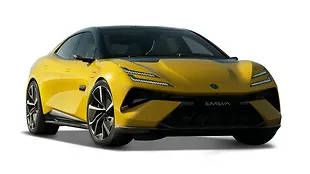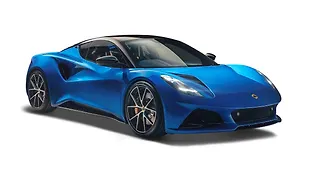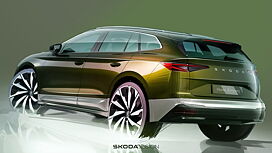Tata Safari vs MG Hector Plus
Introduction
It’s the battle of the trendy six-seater crossovers – both are diesel, both are manual and with on-road prices starting at exactly Rs 18.22 lakh, both are equally heavy on your pocket. What’s interesting here is that both MG Hector Plus and Tata Safari are loosely based on five-seater crossovers that are slightly smaller and still quite new, if you think about it. In this comparison we will tell you which ultra-practical six-seater diesel crossover you should buy.
Performance

Performance is where things get a little debatable for the new Safari. Unlike the rugged old Safari which was built on a ladder frame chassis and had four wheel drive as an option, the new Safari is based on Harrier’s road-friendly monocoque construction which means it’s front-wheel drive only. Now some might argue that the iconic Safari brand has been reduced to yet another crossover offering but as a comfortable family SUV for urban duties, the new Safari is really difficult to fault especially for its on-road performance. You get a 2-litre turbocharged diesel engine producing 168bhp of power and 350Nm of torque. All that torque is channelled to the front wheels through a six-speed manual which allows for fairly direct and easy shifting. Get all your shifts right and you can get to 60kmph from standstill in under five and a half seconds and 100kmph in 11.65 seconds.
| Performance (CarWale Tested) | Tata Safari D MT | MG Hector Plus D MT |
| 0-60kmph | 5.27 seconds | 5.97 seconds |
| 0-100kmph | 11.65 seconds | 13.17 seconds |
This engine does have a lot of lag and you can feel it when you are in higher gears at low speeds. In our roll-on acceleration tests, the Safari took nearly nine seconds to accelerate from 20 to 80kmph in third gear and over 11 seconds for the 40-100kmph run in fourth.
| Performance (CarWale Tested) | Tata Safari | MG Hector Plus |
| 20-80kmph | 8.74 seconds | 8.51 seconds |
| 40-100kmph | 11.43 seconds | 10.85 seconds |
At this point we would like to add that the Hector Plus is powered by the same 2-litre diesel engine and it also gets the same six-speed gearbox as the Safari. In fact, both Tata and MG source this Multijet diesel power-train from FCA, however, there are some differences in refinement and acceleration.

While the Hector Plus’ engine is noticeably less clattery and noisy compared to the Safari, the car itself is slightly slower in a straight line, taking 13.17 seconds for the 0-100 run. In the roll-on acceleration tests, however, the MG proved to be more responsive of the two as it put up quicker in-gear times.

Fuel efficiency
We have tested the Hector Plus for its fuel efficiency and the city and highway figures that we recorded are quite impressive for the size and weight. Unfortunately, we didn’t have the new Safari long enough with us to run it through the same test which is why we will be comparing the ARAI claimed economy figures for this comparison. According to Tata, the new Safari will give you 16.14 kilometres to a litre whereas the Hector Plus is claimed at 16.6 kilometres to a litre. Once again, these two cars that are powered by the same diesel engine will realistically offer similar levels of fuel economy. So no surprises there!

Interior space
Front row
A good commanding driving position is a given thing in both the Hector Plus and the New Safari. You get electric adjustment for the driver’s seat in both but in the MG even the front passenger seat is electrically adjustable. In terms of pure volume, the Safari offers a little more headroom. And although its seat base is a little shorter compared to the MG, the cushioning is better and the seat itself is more supportive of the two.
| INTERIOR MEASUREMENTS | Tata Safari | MG Hector Plus |
| Front | ||
| Legroom (Max/min) | 860/620 | 880/660 |
| Ideal legroom (77 back) | 790 | 780 |
| Headroom(Max/min) | 1000/960 | 970/920 |
| Shoulder room | 1350 | 1360 |
| Seat base length | 500 | 550 |
| Backrest height | 620 | 620 |
| Ingress | 770 | 800 |
Second row
The trend continues when you move to the second row. Here you will find that the seats on the Safari are again a little short on thigh support but you do get better bolstering to keep you in place comfortably. In comparison, the Hector’s rear seats are relatively flat even though the base is longer and you have a taller backrest. And if you are going to be chauffeur-driven, the Safari has something called as 'Boss mode' which allows the second row passenger to adjust the co-driver’s seat which has a lever on the side to make the adjustment. More importantly, the Safari has more shoulder room and headroom than the Hector Plus and that’s a big plus when you have all the six seats occupied.
| Second row measurements | Tata Safari | MG Hector Plus |
| Legroom (Max/min) | 970/720 | 1000/780 |
| Ideal legroom (100 front) | 800 | 780 |
| Headroom | 970 | 920 |
| Shoulder room | 1360 | 1300 |
| Seat base length | 500 | 540 |
| Backrest height | 600 | 620 |
| Ingress | 840 | 800 |
Third row
In both these crossovers, access to the third row is either through the space in between the captain seats or by dropping the middle-row seats. It's not a straightforward experience in either cars, but the Safari is a little less difficult thanks to the additional legroom and better ingress. You get a large panoramic sunroof in both which adds to the sense of space and airiness although the Safari goes the extra mile for the third-row with separate adjustments for the air-vents and air-flow controls. All in all, the third row in both Safari and the Hector Plus can best be described as an emergency seating option. With the second-row seats adjusted to a comfortable position, third row accommodation is quite cramped.
| Third Row measurements | Tata Safari | MG Hector Plus |
| Legroom (Max/Min) | 900/670 | 700/500 |
| Headroom | 8800 | 870 |
| Shoulder Room | 1200 | 1250 |
| Seat base length | 470 | 400 |
| Backrest height | 560 | 580 |
Boot
In terms of boot space, there isn’t much that you can store in either cars without folding the third row seats. Sure, you can keep soft bags and backpacks but that’s about it. You can split and fold the third row seats to free up a lot more cargo space. Overall, the Safari and the Hector Plus are quite closely matched when it comes to seating space, comfort and boot space. It’s other aspects like features and safety equipment which may be the deciding factors for many buyers.
| Boot (with 3rd row up) | Tata Safari | MG Hector Plus |
| Length/width/height | 1120/350 | 1120/320 |
| Loading lip height | 760 | 800 |
| Loading lid height | 1860 | 1970 |
| Boot (3rd row down) | ||
| Length/width/height | 1000/990/900 | 1000/1020/410 |
Features
Inside, both Hector Plus and the Safari get soft-touch plastics, leather wrapped steering and gear knob on top-end variants. The equipment list is also rather long on both with common features including panoramic sunroof, electrically adjustable driver’s seat, climate control, ambient lighting, steering mounted controls and a feature packed infotainment system.

However, there is a huge difference in the display on both the cars and how the information is delivered to the driver. In the Hector Plus you get a 10.4-inch vertically stacked touchscreen with smartphone mirroring and even Hinglish voice commands. The 8.8-inch widescreen display on the Safari also has Apple CarPlay and Android Auto. The sound quality is also better on the Tata thanks to the 9-speaker JBL system, however, the display is slow to respond and not as slick as the one in the Hector Plus.

In terms of standout features, even this front-wheel drive Safari comes with what Tata calls Terrain Response System which allows you to choose between three off-road driving modes. There’s normal, rough and wet in case you ever decide to take this family-oriented, road biased crossover. The Safari also gets an electronic parking brake as opposed to the Hector Plus’ manual handbrake. But this is where it all ends for the Safari because even in its most top-end trim, the Safari cannot compete with the Hector Plus when it comes to equipment. MG has loaded it with features including front parking sensors, a 360 degree camera, ventilated front seats, wireless charging, electrically adjustable co-driver’s seat and some more.

Price
Tata is selling the Safari diesel manual in seven different variants with prices starting at Rs 18.22 lakh on-road for the base XE variant, going all the way till Rs 25.09 lakh for the fully loaded XZ Plus Adventure variant. The MG Hector Plus range, on the other hand, also starts at Rs 18.22 lakh for the entry-level Style variant, while the most expensive Sharp variant can be yours for Rs 23.88 lakh.
| Price Comparison (on-road) | Tata Safari D MT | MG Hector Plus D MT |
| Entry-level variant | Rs 18.22 lakh | Rs 18.22 lakh |
| Mid-level variant | Rs 22.56 lakh | Rs 21.74 lakh |
| Top-level variant | Rs 25.09 lakh | Rs 23.88 lakh |
Now hardcore Safari fan boys may not warm up to the idea of a front-wheel drive soft roader but the fact remains that this new model is a really good road car and that’s what majority of crossover buyers want from their rides. The Safari also has solid road presence and a little more space in this comparison but its lack of features puts it on the back burner.

The Hector Plus may not have the same level of street credibility as the Safari but its value proposition is much stronger here. You get a longer list of usable features in every comparable variant and that’s an important criteria for buyers in this segment.
Pictures by Kaustubh Gandhi

![Tata Safari [2021-2023] Image Tata Safari [2021-2023] Image](https://imgd.aeplcdn.com/272x153/n/cw/ec/40027/safari-exterior-right-front-three-quarter-2.jpeg?q=80)
























